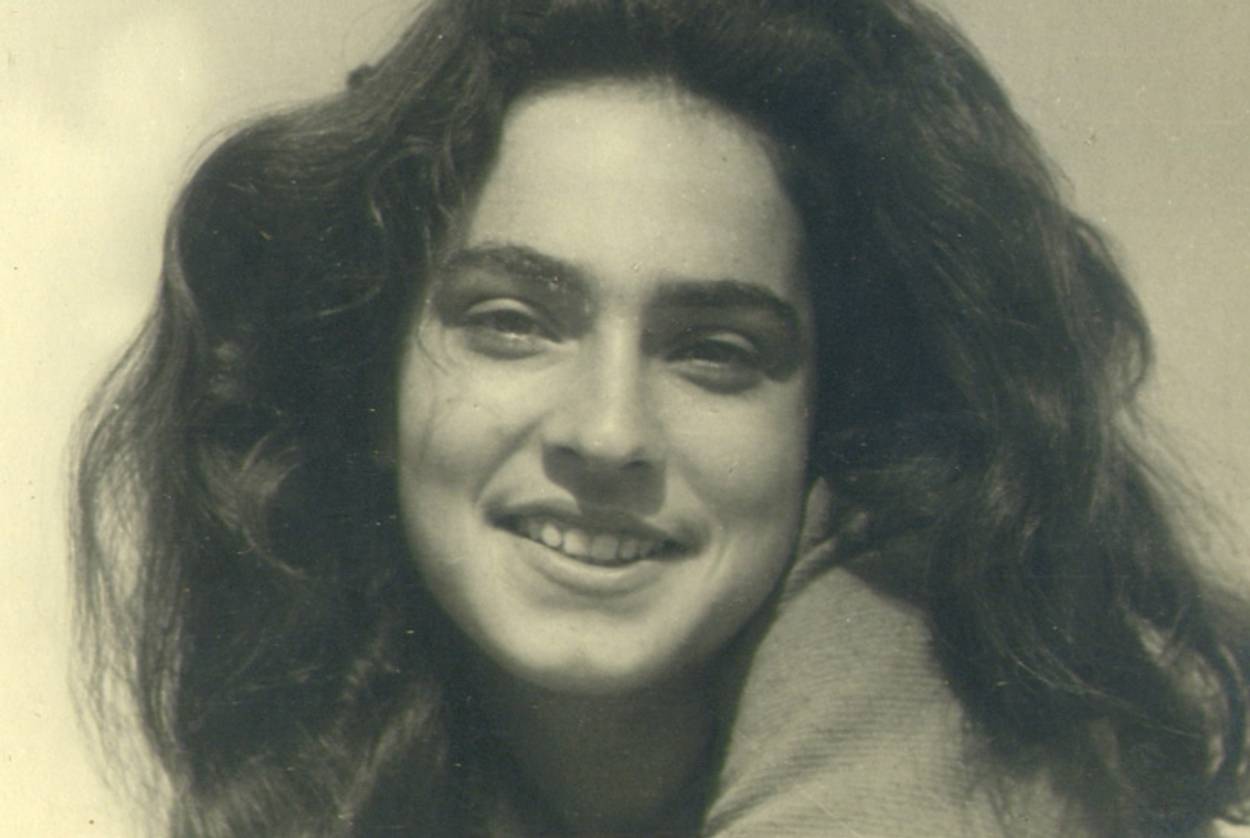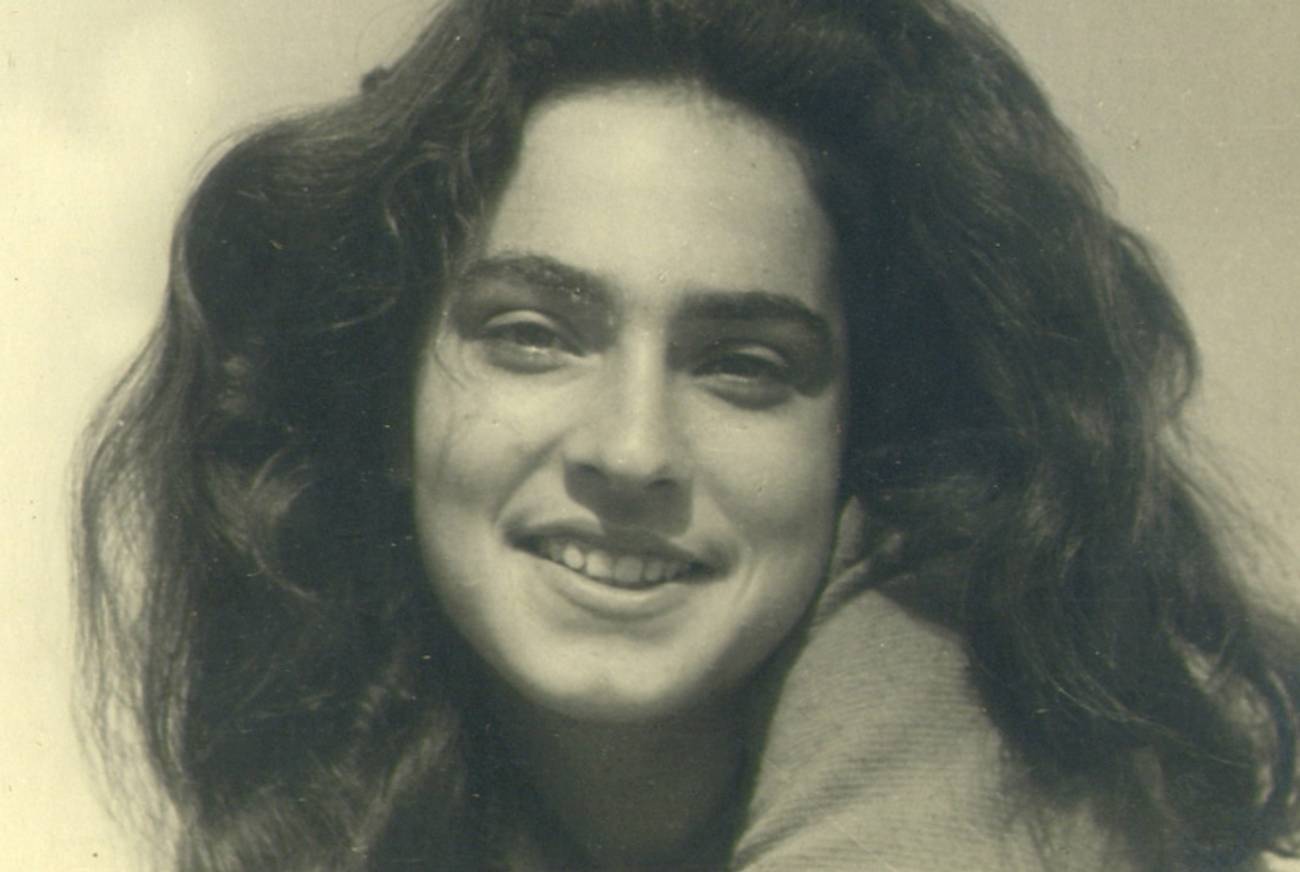The Tumultuous Life and Nuanced Work of Israel’s Greatest Children’s Book Writer
After tragedy, Dvora Omer found flaws, beauty in the nation’s founding figures, turning them into literary heroes




There are many different ways to be dumb about literature. When you’re in high school, the men and women who teach it to you—sometimes passionate and sweet, too often underpaid, insecure, and sour—insist that your primary task as a reader is to decipher the hidden meanings that the author weaved throughout the text like a serial killer leaving behind clues to taunt his weary pursuers. When you’re in college, the men and women who teach it to you—also underpaid, also probably sour—turn their attention from text to author, wrestling the creative spirit down to the therapist’s couch and squeezing it until, anguished, it is ready to cry uncle, or, more likely, mother. Both approaches are vile and joyless, but when it comes to Dvora Omer—the great Israeli writer of novels for young adults who passed away earlier this year—they seem inevitable: More than those of any other writer I can think of, Omer’s life and work are best understood as threads of the same tale, an epic poem of sacrifice and betrayal on which all Israeli children were reared.
Omer was born in a northern kibbutz in 1932, and her parents divorced when she was an infant, her father moving to another kibbutz and marrying another woman. He would visit his firstborn infrequently, once every few months, each visit culminating in the little girl sobbing and begging him to stay. He never did. Then, Omer’s mother died when the future literary lioness was only 11 years old. At the time, she was told that her mother was unhappy and had shot herself. At the funeral, Dvora was ordered to stop crying, as weakness was unbecoming of true and tough kibbutzniks. If that wasn’t enough, Galia, her caretaker at the kibbutz, disappeared shortly thereafter, leaving Omer all alone.
She took to writing, making up fantastical tales in which everyone was happy and no one was dead. Her teachers told her that her stories were horrible, often adding that she had no talent and urging her to abandon her literary ambitions for more useful tasks like cooking or cleaning. Omer, however, persevered: In 1959, after a stint as a teacher, she published her first book, The Pages of Tamar, a novel in diary form detailing the everyday life of a perfectly normal girl from a perfectly normal family living in a fictitious kibbutz. It was a hit. Tamar and her tightly knit clan were for Israelis what the Ingalls family had been for Americans—a shamelessly romanticized and utterly charming account of frontier life that was both an operatic celebration of the nation’s founding pioneers and an intimate portrayal of daily life in harsh conditions.
Several more installments of Tamar followed before the popular author, now married, received a bit of news from a friend. Her mother, she was told, did not commit suicide; she was a member of the Hagannah, the pre-state precursor to the Israel Defense Forces, and was accidentally killed by friendly fire during a training drill. The shooter was Galia, Omer’s caretaker. To keep the British mandatory authorities from finding out, Omer’s mother was hastily announced a suicide and Galia was whisked away to another kibbutz. When Omer, devastated, shared the news with her husband, he told her that he had known all along; it was a secret, he said, he was sworn not to tell.
With that began the main act of Omer’s career. In dozens of books published in rapid succession beginning in 1959—sometimes four or five or six a year—she abandoned the ordinary and fictional Tamar for a series of extraordinary historical figures, all of whom had sacrificed their all for the benefit of the Zionist enterprise.
I came across the best-known of these books, Sarah, Heroine of Nili, when I was 8, browsing the shelves of the single, small room dedicated to children’s books in our local library. The cover alone was enough to induce a mild streak of anxiety: It was bright orange, with a white zig-zagged line running down the middle, making it seem as if the paper had torn. In the upper right-hand corner, a crudely penciled young woman riding a beautiful horse faced a menacing-looking man in Arab garb. She needed no introduction, as every schoolchild knew all about the heroic Sarah Aharonson, a noted botanist who had formed an underground espionage ring to aid the British in World War I, was found out by the Ottomans, and, after being tortured by the Turks, had heroically managed to shoot herself rather than give away the names of her co-conspirators. By second grade, I had already visited Aharonson’s home in Zikhron Ya’akov, had seen the bathroom where she had martyred herself, and received a short and age-appropriate lecture about her organization, Nili, a Hebrew acronym for “The Eternity of Israel Will Not Lie.”
It was heady stuff, and Omer’s reputation as the greatest writer young Israelis could ever hope to read, solidly cemented by the time I was old enough to take an interest in literature, helped recommend the novel. I pulled the book off the shelf, sat down on the library’s floor, and started to read.
What happened next was something that happens sometimes with truly remarkable books, a sensation I’ve since experienced frequently but which, that day on the cold and clean floor in the poorly lit library room, was strange and sweet and heady: Time rushed by unnoticeably fast, and then, like a raft crashing on a cluster of jagged rocks hiding just below the surface midstream, came to a halt with one stunning scene, leaving me first to wonder where the hours had gone and then to contemplate those steely passages that battered me out of my reverie. They described a conversation between Sarah and her boyfriend, Avshalom Feinberg; hoping to meet influential Turkish officers and charm them into spilling some secrets, Sarah decides to dress up and go to a fancy ball; leery, Avshalom urges her to be cautious. “I’ll defend my honor,” Sarah says to him, “but if I need to, I’ll rise above it. We promised to do whatever it takes for our cause, no?”
The language was polished, and the sentiments expressed heroic, but any precocious third-grader would have immediately picked up on the fact that Sarah was telling Avshalom that, if necessary, she would sleep her way into the confidence of the Ottoman military elite.
Speaking from a strict literary perspective, the passage isn’t much to behold. But if you went to the kind of school where a visit to Sarah Aharonson’s suicide spot was considered a fun day for second-graders, learning that the hallowed heroine was a canny and nuanced human who was not above trading sex for information left you with a new and deeper appreciation of the Zionist pantheon of heroes and heroines.
This, more than anything, was Dvora Omer’s contribution to Israeli culture. We’ve had greater storytellers but rarely ones as adept at stripping our idols of their otherworldly sheen without denying them their genuine grandeur, making them admirable and approachable at once. In 1967, for example, the same year the Aharonson book came out, Omer published another lightly fictionalized historical biography, this time of Itamar Ben Avi, the son of modern-day Hebrew’s reviver, Eliezer Ben Yehuda. To hear our school textbooks tell it, Ben Yehuda was a two-dimensional sage whose intellect and commitment to language as the engine of Jewish nationalist resurgence conferred on him something close to godhood; what mere mortal, argued our elementary-school curricula, could be formidable enough to command a moribund language out of its grave and into daily usage in streets and shops and cafés? Omer’s book shared in the general awe but also portrayed Ben Yehuda as a deeply flawed father, so alight with the fires of his mission that he turns his son into a linguistic pariah, forcing him to speak a language no one else at the time understood. Like Sarah Aharonson, and like Omer herself, Itamar Ben Avi—his last name means “my father’s son”—is primarily defined by all he’s had to sacrifice.
By the time I was old enough to read Omer’s books critically, she had covered every aspect of Israel’s history, from its founding fathers (she’d written surprisingly tender biographies of Herzl and Ben Gurion) to its military heroes (a slew of later books celebrated the bravery of fallen soldiers, some real and some fictional). But by that time, they were no longer meant for me. Revisiting some old favorites one idle afternoon in college, I could still spot the old virtues that had once attracted me and so many others to Omer’s writing, but I no longer felt the same jolts that had rocked me years before. Perhaps that’s because Omer’s work, like all genuinely great children’s books, had at its core a profound hopefulness—aware of the perils surrounding it yet determined to proceed with glee and grace—that adults can no longer access. And the adult world, with its harshness and its lies, had never been too kind to Dvora Omer.
When she died this past May, after years of being ravaged by dementia, the Israeli press served up a full platter of platitudes. But they were missing the point: The Dvora Omer they portrayed was the opposite of a layered and flawed and yet majestic Dvora Omer character. But that’s all right: Those Omer truly meant to reach can still slip into a nearby library, sit on the floor, pull out that book with the shocking orange cover, and transcend.
***
Like this article? Sign up for our Daily Digest to get Tablet Magazine’s new content in your inbox each morning.
Liel Leibovitz is a senior writer for Tablet Magazine and a host of the Unorthodox podcast.
Liel Leibovitz is editor-at-large for Tablet Magazine and a host of its weekly culture podcast Unorthodox and daily Talmud podcast Take One. He is the editor of Zionism: The Tablet Guide.